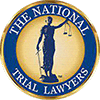The Legum Baccalaureus, or Bachelor of Laws (LL.B.), is an undergraduate academic degree in law that serves as the initial step towards a legal career in numerous countries, particularly those adhering to a common law tradition. With its roots in medieval Europe, the LL.B. has played a pivotal role in legal education, equipping students with a comprehensive understanding of the law and its various applications. As a key component of the legal profession, the LL.B. has adapted over time, incorporating a diverse range of subjects and practical experiences to prepare graduates for the challenges and opportunities they will face as legal practitioners, ultimately earning them the title of Esquire.
To gain admission to an LL.B. program, prospective students typically need to pass the Law School Admission Test (LSAT). In this extensive guide, we will examine the purpose, structure, and admission requirements of the LL.B. degree, providing a thorough overview of this foundational legal qualification. As part of this exploration, we will also discuss the role of Admissions Officers in evaluating potential law school applicants and determining their eligibility for enrollment.
After completing an LL.B. degree, graduates may choose to further their legal education by pursuing an LL.M. (Master of Law) degree, which allows them to specialize in a particular area of law. Alternatively, in the United States, aspiring lawyers must obtain a Juris Doctor (J.D.) degree, the graduate-level degree necessary to practice law in the country.
As legal professionals progress in their careers, they may decide to pursue a J.S.D. (Juridicae Scientiae Doctor), a Doctor of Science of Law degree that is equivalent to a Ph.D. in law. Furthermore, some legal practitioners may opt to serve as a Justice of the Peace (JP), presiding over small claims court or performing other judicial duties.
Upon passing the Bar Exam, a state examination assessing an individual’s legal knowledge and fitness to practice law, lawyers can establish or join a Professional Association (P.A.) to operate a law firm.
Purpose of the LL.B. Degree
The LL.B. degree serves several key purposes in the context of legal education and professional development:
- Comprehensive legal education: The LL.B. program imparts a broad understanding of the law, covering core legal subjects, as well as a range of specialized areas, ensuring that graduates have the knowledge and skills necessary to navigate the complex legal landscape.
- Development of critical thinking and analytical skills: Through coursework, case studies, and research projects, LL.B. students learn to analyze legal issues, interpret statutes and case law, and construct persuasive arguments, honing essential skills for success in the legal profession.
- Preparation for professional practice or further study: The LL.B. degree is designed to equip graduates for entry into professional practice or for the pursuit of advanced legal qualifications, such as the Master of Laws (LL.M.) or the Doctor of Juridical Science (S.J.D.).
- Foundation for diverse career paths: The LL.B. program provides a versatile education, enabling graduates to explore a wide range of career opportunities within the legal field and beyond.
Structure of the LL.B. Program
The LL.B. program typically spans three to four years of full-time study, with part-time options available at some institutions. The curriculum comprises the following components:
- Core courses: Students complete foundational courses in subjects such as contracts, torts, property, criminal law, constitutional law, and administrative law.
- Elective courses: In the latter years of the program, students have the opportunity to choose from a variety of elective courses, allowing them to delve into specialized areas of law and tailor their education to their interests and career goals.
- Practical experience: LL.B. programs often incorporate practical experiences, such as internships, moot courts, and legal clinics, to help students apply their legal knowledge in real-world settings and develop essential professional skills.
- Legal research and writing: Throughout the program, students are required to complete research projects and written assignments, fostering strong research and communication skills that are crucial for success in the legal profession.
Admission Requirements
Admission to LL.B. programs is often competitive, with requirements varying by institution and jurisdiction. Generally, the admission process includes the following steps:
- Complete secondary education: Applicants must hold a high school diploma or equivalent qualification.
- Take standardized tests: Some institutions require applicants to take standardized tests, such as the Law National Aptitude Test (LNAT) in the United Kingdom or the Scholastic Assessment Test (SAT) in the United States.
- Submit application materials: Along with the application form, prospective students typically need to submit a personal statement, letters of recommendation, and official transcripts from all previously attended educational institutions.
- Attend interviews: Some law schools may require or offer optional interviews as part of the admission process.
Career Prospects for LL .B. Graduates
LL.B. graduates have a wide range of career opportunities available to them, both within and outside of the legal profession. Some common career paths include:
- Attorney: With additional qualifications and licensing, such as completing a legal practice course or passing a bar examination, LL.B. graduates can practice law in various settings, such as private law firms, government agencies, corporations, or non-profit organizations.
- Judicial clerkship: Recent graduates may pursue clerkships with judges at the local, state, or federal level, providing valuable experience and networking opportunities.
- Public interest law: Some LL.B. graduates choose to work in public interest law, advocating for underrepresented populations or focusing on social justice issues.
- Legal academia: Graduates with a strong interest in research and teaching may pursue a career in legal academia, working as law professors, researchers, or pursuing further legal qualifications such as the LL.M. or S.J.D.
- Alternative legal careers: LL.B. graduates can also apply their legal knowledge and skills to careers outside of traditional legal practice, such as compliance officers, legal consultants, policy analysts, or court administrators.
- Non-legal careers: The critical thinking, analytical, and communication skills developed during an LL.B. program can be valuable in a wide range of non-legal careers, such as business, finance, journalism, public administration, or international relations.
Conclusion
The LL.B. degree represents a crucial first step for individuals aspiring to enter the legal profession or build a career in a related field. By providing a comprehensive legal education and developing essential critical thinking and analytical skills, the LL.B. program lays the groundwork for a successful and fulfilling career. Understanding the purpose, structure, admission requirements, and career prospects of the LL.B. degree can help prospective students make an informed decision about whether this path aligns with their goals and aspirations. With an LL.B. in hand, graduates have the opportunity to make a meaningful impact in the legal field and contribute to the pursuit of justice and fairness in society.







